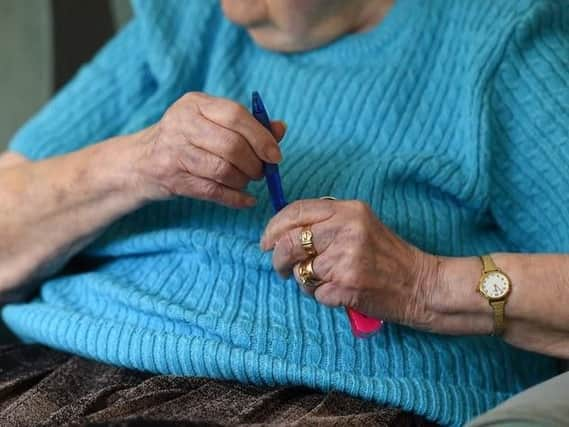Wigan dementia patients at risk of stroke from antipsychotic drugs


The Alzheimer’s Society has warned that the drugs are an “archaic and inappropriate” way to treat most people living with dementia.
Other news: Thousands turn out for annual Wigan 10k
At the end of June, 216 dementia patients in the Wigan Borough Clinical Commissioning Group (CCG) area had been prescribed antipsychotics in the previous six weeks, NHS Digital figures show. Of those, at least 96 were given them despite not being diagnosed with psychosis - more than 40 per cent.
Advertisement
Hide AdAdvertisement
Hide AdOverall, 2,730 people with dementia live in Wigan, meaning eight per cent were given antipsychotics in the previous six weeks: slightly lower than the nine per cent prescribing rate across England.
The Royal College of Psychiatrists said that the “vast majority” of dementia sufferers are unlikely to need antipsychotic medication, which is often used to sedate and calm agitated patients.
Following an analysis which showed that inappropriate prescriptions of antipsychotics contributed to around 1,800 deaths a year, the Department of Health made reducing their use a national priority in 2009.
But prescriptions have risen by six per cent in England in the last year although usage fell slightly in Wigan.
Advertisement
Hide AdAdvertisement
Hide AdDr Tim Dalton, chair of Wigan CCG, said: “Anti-psychotic drugs are sometimes prescribed for people who have illnesses that cause behaviour that can be difficult to manage, including people with dementia. They should always be seen as a last resort, once all other options have failed.
“I am very pleased that our prescribing of anti-psychotic drugs for people with dementia is lower than the national average and is reducing. This reflects the joint work of ourselves, our GPs and the local mental health trust, North West Boroughs, who are all working hard to monitor and reduce their use.
"Any new patients started on anti-psychotic medication for dementia must remain under the care of mental health specialists and pharmacists who are responsible for regularly reviewing the medication to ensure that these are only used where essential and for the shortest amount of time.
“We expect to see continued reductions in prescribing in this area.”
Advertisement
Hide AdAdvertisement
Hide AdThe Alzheimer’s Society said the increased use of antipsychotics across England was “incredibly concerning”, and called for more funding for investment in dementia care.
Fiona Carragher, the society’s chief policy and research officer, said: “These drugs should be used only as a last resort. They can increase the risk of death, treble the risk of stroke and accelerate cognitive decline.
“People with dementia are falling prey to a stretched system, and it’s high time the Government created a joined-up system to deliver decent dementia care to everyone who needs it.”